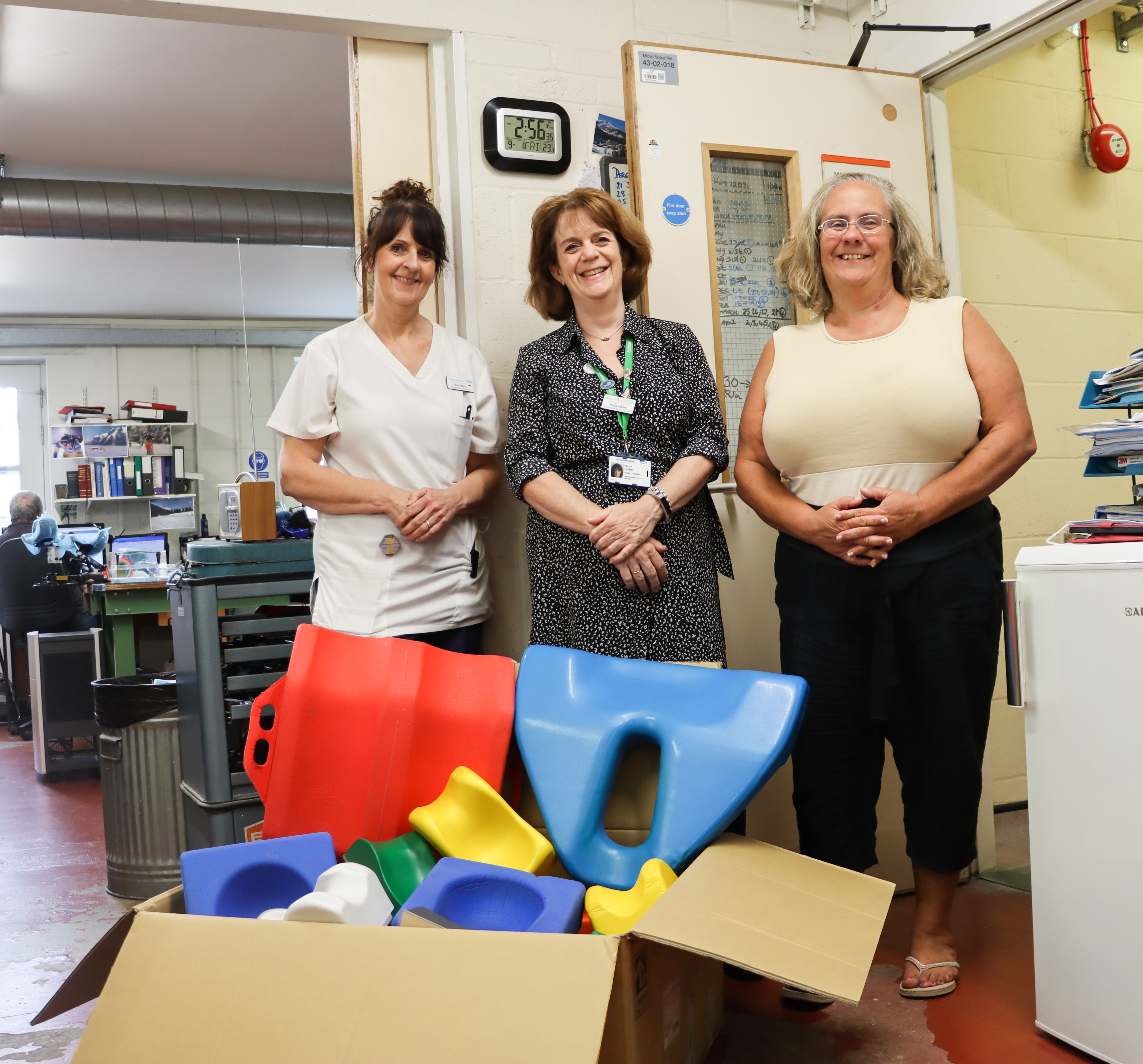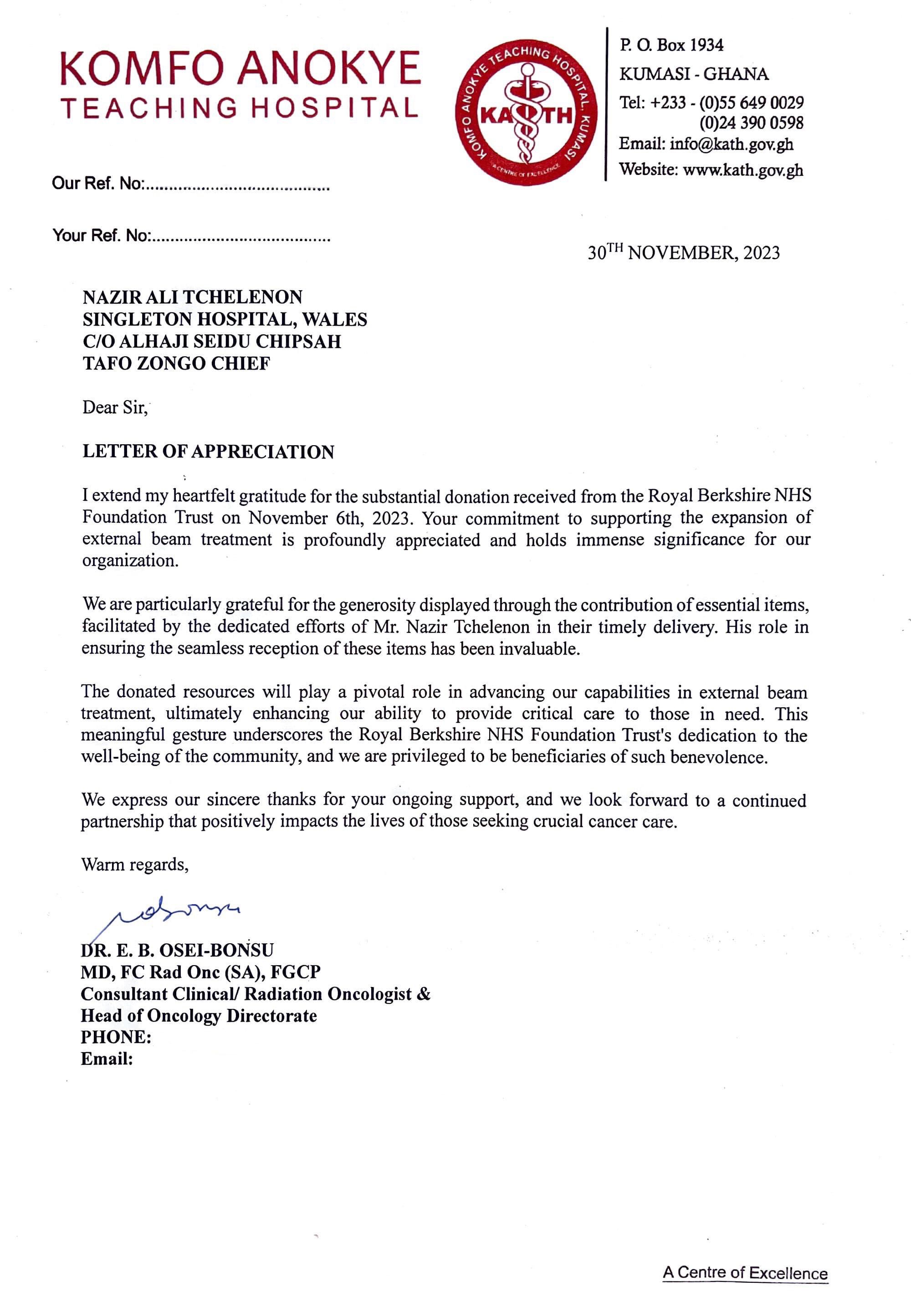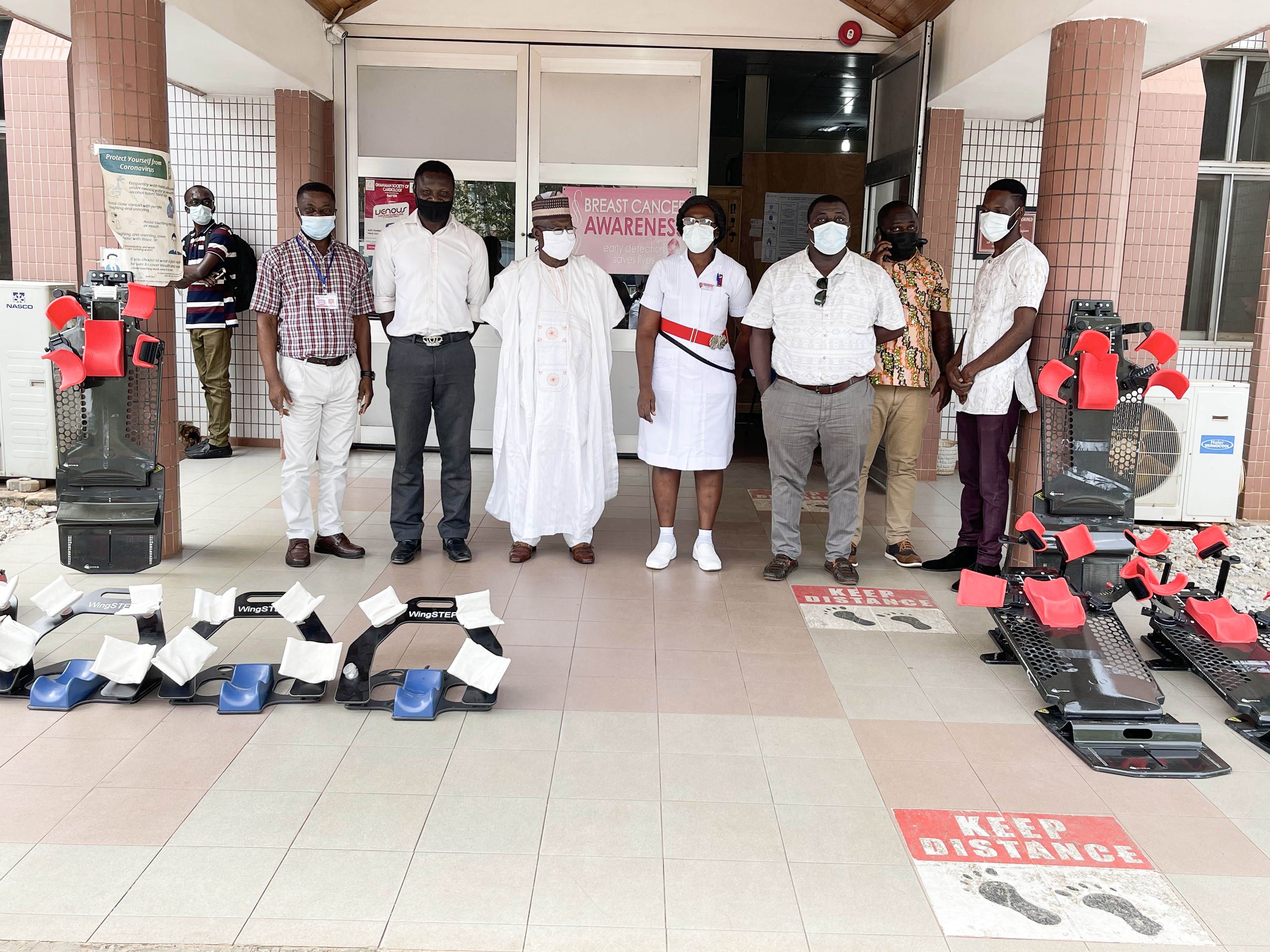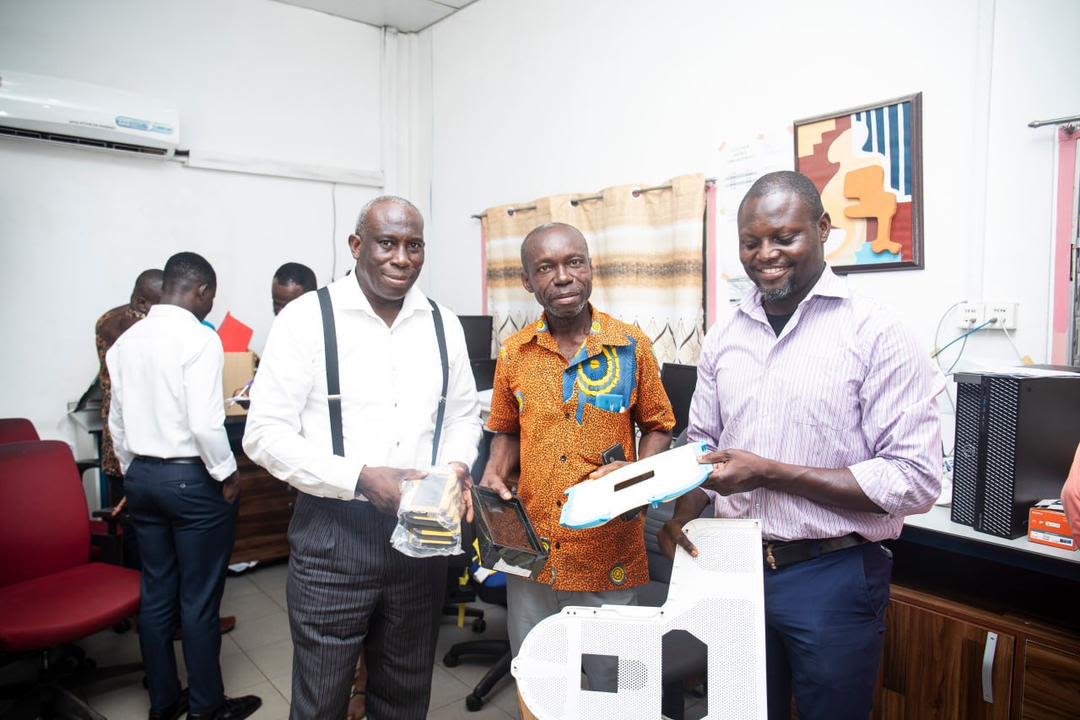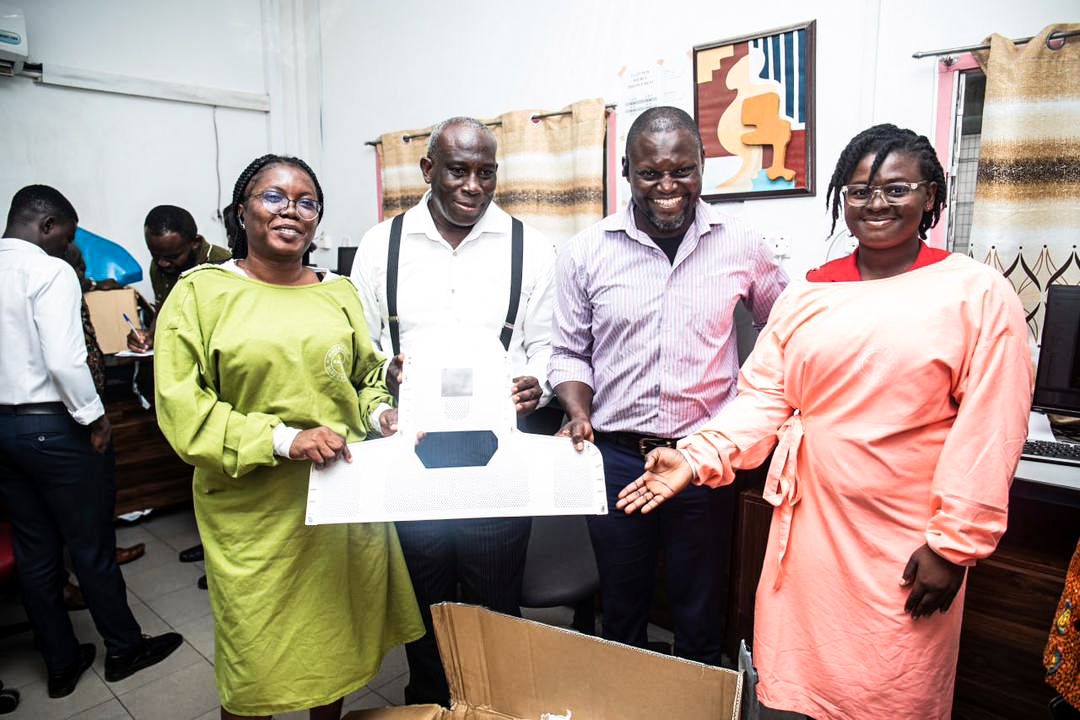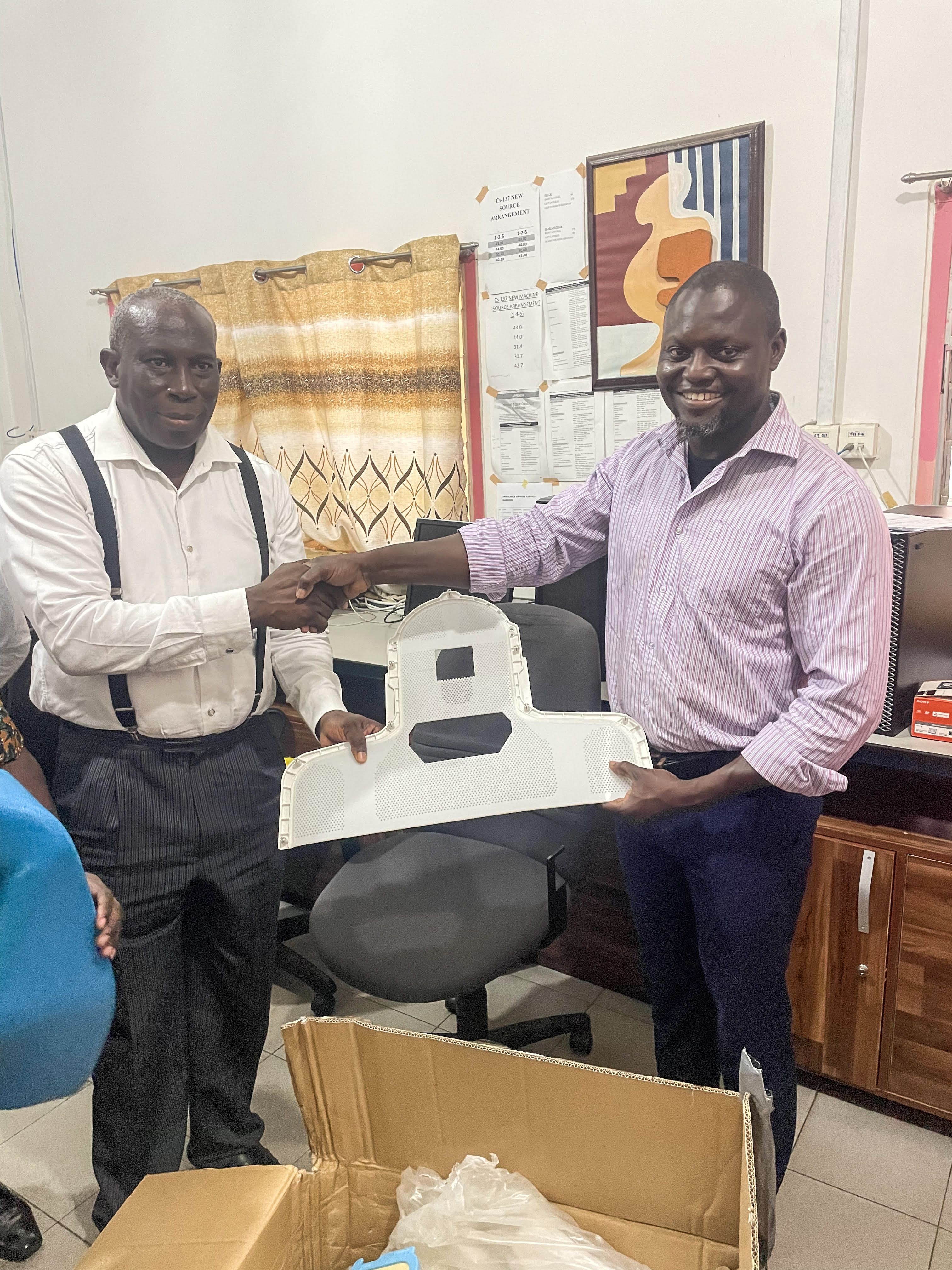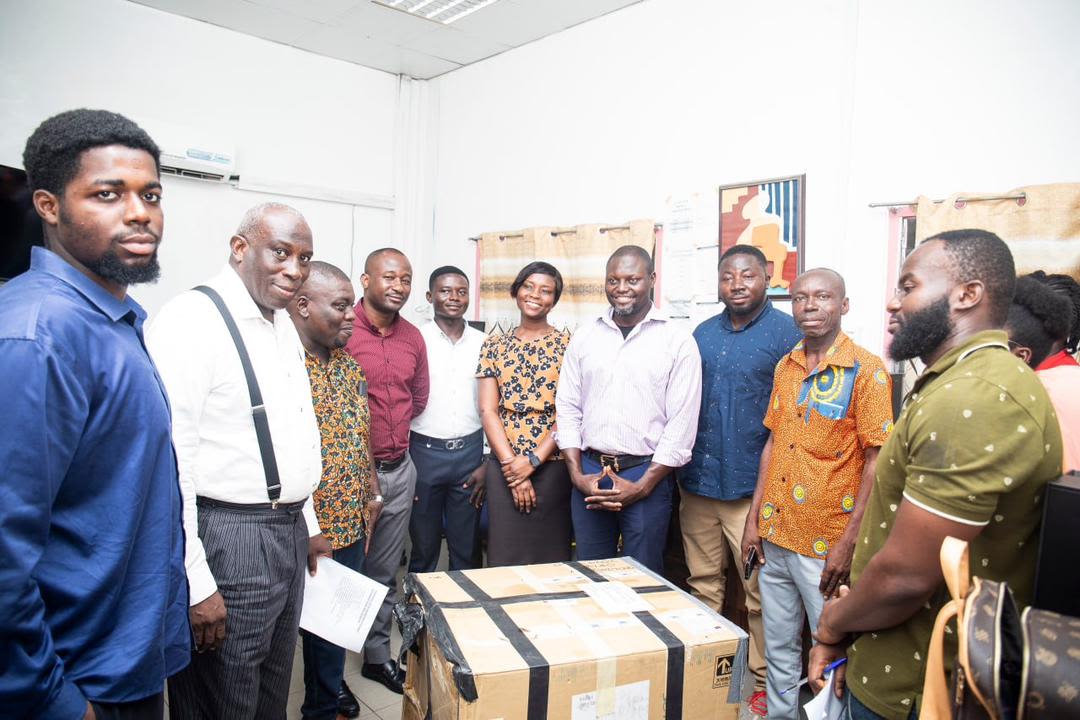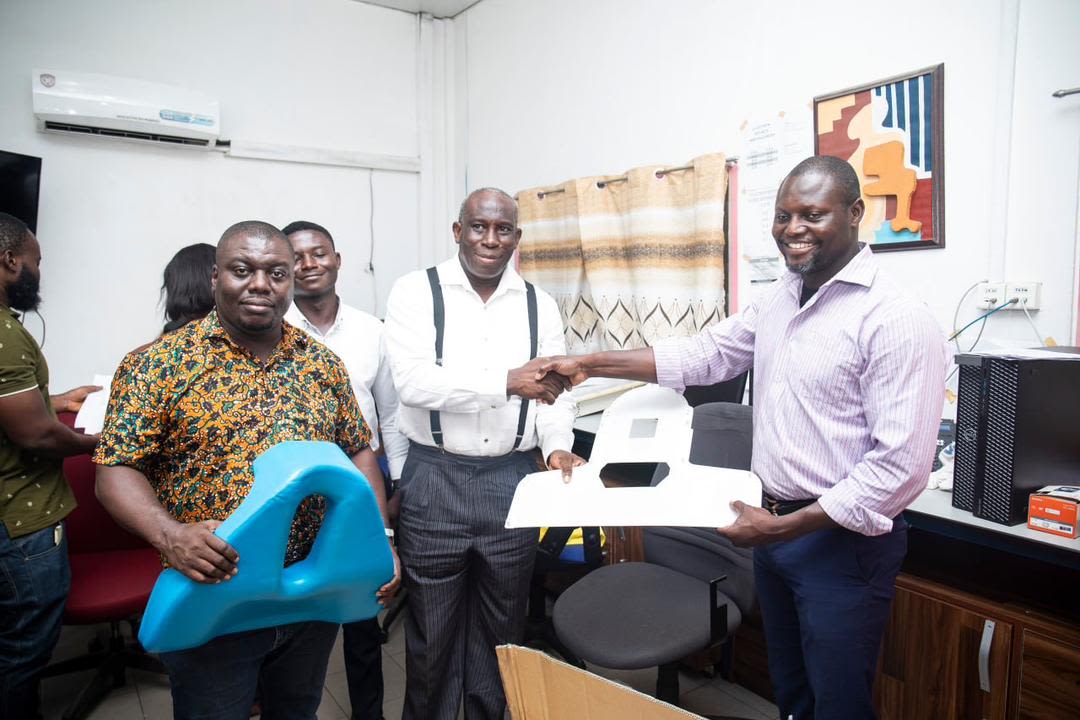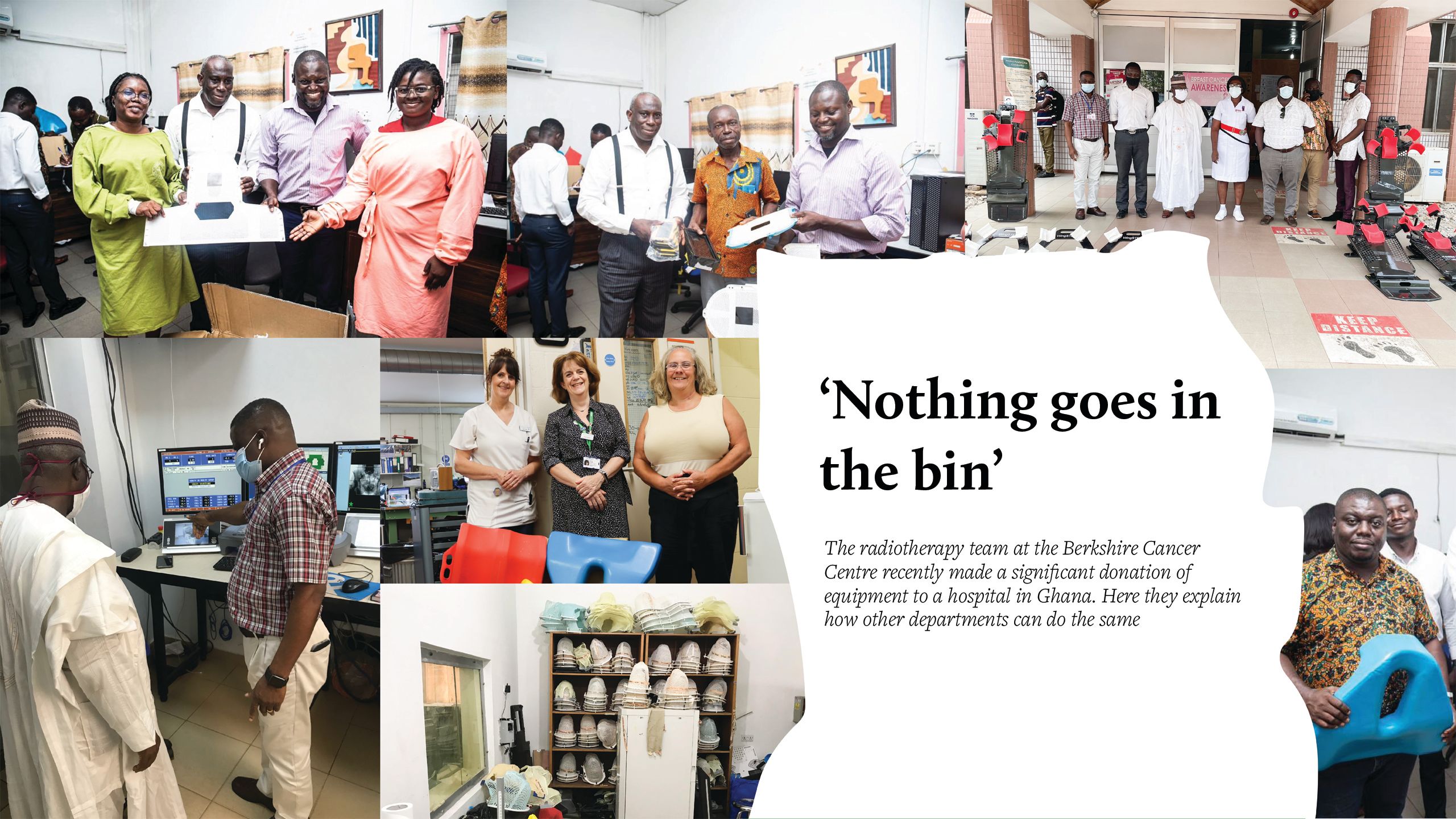
'Nothing goes in the bin'
The radiotherapy team at the Berkshire Cancer Centre recently made a significant donation of equipment to a hospital in Ghana. Here they explain how other departments can do the same
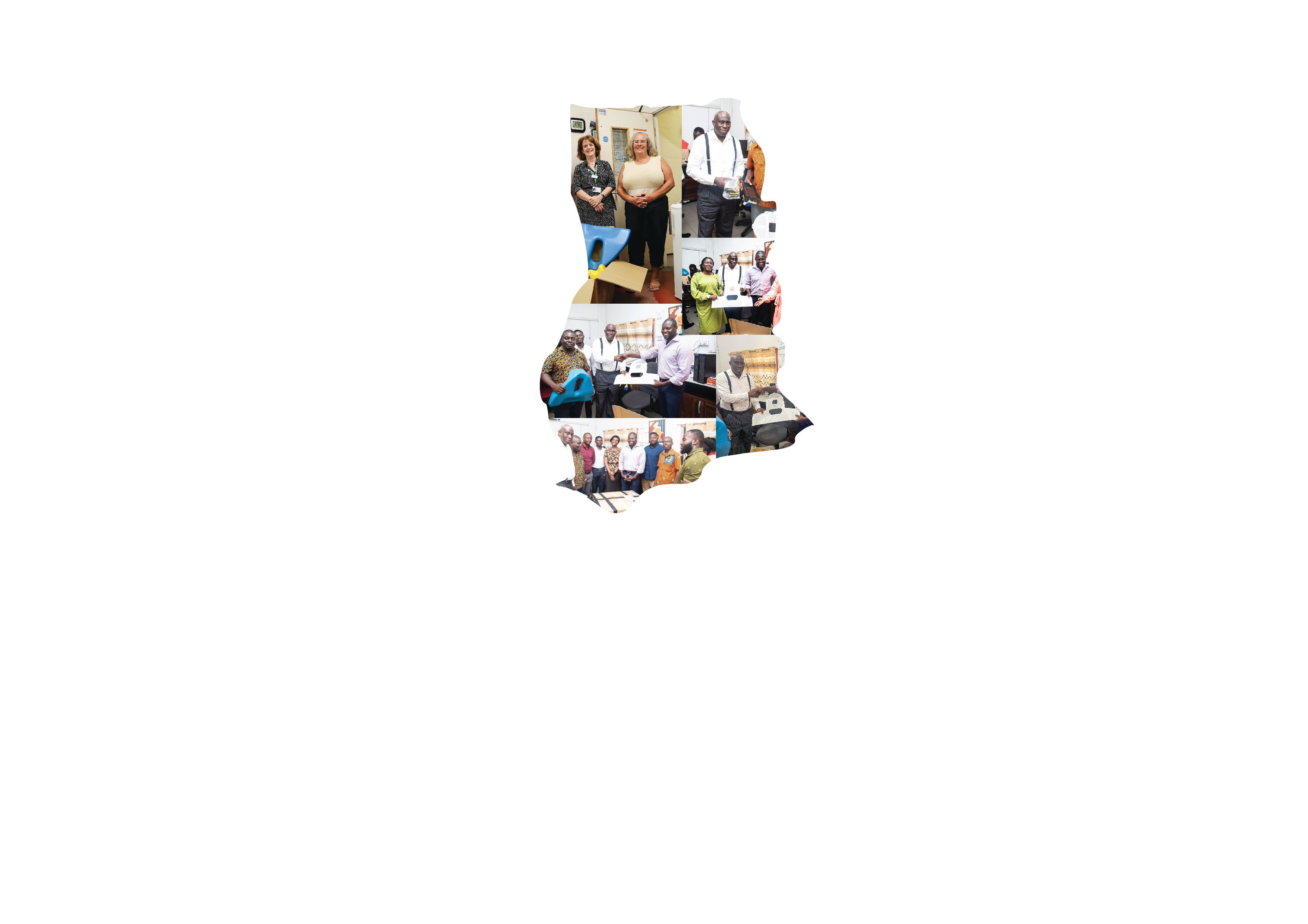
The story behind the Berkshire Cancer Centre’s involvement with Ghana dates back more than a decade.
In 2012, the centre’s radiotherapy service manager, Paula Horne, visited the Komfo Anokye Teaching Hospital in Kumasi, southern Ghana, as part of a trip to explore how radiotherapy departments operated in other parts of the world.
While there, Paula said she was struck by the vast differences in practice between radiotherapy departments in the UK, and those in Ghana.
“When I was in Ghana,” said Paula, “one thing that struck me was the difference between public centres and private centres.
“Here, private centres are often able to provide treatment a bit quicker, but there’s not a difference in treatment.
“In Ghana, public centres were using cobalt units that we decommissioned years ago.”
Fast-forward to 2023, and Paula’s trip would have unexpected impacts long after she landed back in the UK, when one of her team spotted a Facebook post asking for donations of equipment to that same hospital.

The story behind the Berkshire Cancer Centre’s involvement with Ghana dates back more than a decade.
In 2012, the centre’s radiotherapy service manager, Paula Horne, visited the Komfo Anokye Teaching Hospital, in Kumasi, southern Ghana, as part of a trip to explore how radiotherapy departments operated in other parts of the world.
While there, Paula said she was struck by the vast differences in practice between radiotherapy departments in the UK, and those in Ghana.
“When I was in Ghana,” said Paula, “one thing that struck me was the difference between public centres and private centres.
“Here, private centres are often able to provide treatment a bit quicker, but there’s not a difference in treatment.
“In Ghana, public centres were using cobalt units that we decommissioned years ago.”
Fast-forward to 2023, and Paula’s trip would have unexpected impacts long after she landed back in the UK, when one of her team spotted a Facebook post asking for donations of equipment to that same hospital.
Reaching out
“This all came about because we knew about Ghana because of Paula’s involvement,” said Vicky Hammond-Turner, technical and development lead therapeutic radiographer at the cancer centre, who spotted the Facebook post calling for donations.
“I’m active on professional social media platforms and I was on the ‘World Wide Radiation Therapist,’ a Facebook group I’ve been a member of for a few years.
“Somebody in the group was asking if anyone had any immobilisation equipment they were willing to donate, and to get in touch.”
Vicky reached out to the person, former radiographer Nazir Ali, exchanging emails and trying to work out how the Berkshire Cancer Centre could help support fellow radiographers in Ghana, discussing potential options with Paula.
At around this time, Vicky was tasked with tidying up, including where the department’s fourth linear accelerator (LINAC) was kept, ahead of a deep clean. There she began sorting through immobilisation equipment that was no longer in use. Reluctant to throw away perfectly functional equipment, Vicky enlisted the help of the radiotherapy team’s mould room technician, Kim Hehir, who looked after the store room where the department’s immobilisation equipment was stored. But it soon became clear that there just wasn’t enough space.
Reaching out
“This all came about because we knew about Ghana because of Paula’s involvement,” said Vicky Hammond-Turner, technical and development lead therapeutic radiographer at the cancer centre, who spotted the Facebook post calling for donations.
“I’m active on professional social media platforms and I was on the ‘World Wide Radiation Therapist,’ a Facebook group I’ve been a member of for a few years.
“Somebody in the group was asking if anyone had any immobilisation equipment they were willing to donate, and to get in touch.”
Vicky reached out to the person who had posted, former radiographer Nazir Ali, exchanging emails and trying to work out how the Berkshire Cancer Centre could help support fellow radiographers in Ghana, discussing potential options with Paula.
At around this time, Vicky was tasked with tidying up, including where the department’s fourth linear accelerator (LINAC) was kept, ahead of a deep clean. There she began sorting through immobilisation equipment that was no longer in use. Reluctant to throw away perfectly functional equipment, Vicky enlisted the help of the radiotherapy team’s mould room technician, Kim Hehir, who looked after the store room where the department’s immobilisation equipment was stored. But it soon became clear that there just wasn’t enough space.
Nothing goes in the bin
“I sent all the equipment over to Kim, at which point Kim said ‘no more please, I have no more space’. So everything just happened naturally.
“We had all this old kit taking up space, Kim couldn’t store it, and we weren’t going to use it.
“My personal ethos over the last couple of years at home and work has been ‘nothing goes in the bin.’
After sifting through the equipment, the Berkshire radiotherapy team found they had dozens of pieces of equipment that they loaded up into two large boxes, with a plan to ship them to Ghana.
The boxes included 20 headrests, knee rests, head and neck thermoplastic used for making immobilisation masks, and around 30 used but clean radiotherapy bras.
Vicky was keen to highlight that the equipment they had collected was not waste - it was perfectly usable equipment that just wouldn’t be used again in the department for a variety of reasons - for example infection control, or had been succeeded by an updated version.
Nothing goes in the bin
“I sent all the equipment over to Kim, at which point Kim said ‘no more please, I have no more space’. So everything just happened naturally.
“We had all this old kit taking up space, Kim couldn’t store it, and we weren’t going to use it.
“My personal ethos over the last couple of years at home and work has been ‘nothing goes in the bin.’
After sifting through the equipment, the Berkshire radiotherapy team found they had dozens of pieces of equipment that they loaded up into two large boxes, with a plan to ship them to Ghana.
The boxes included 20 headrests, knee rests, head and neck thermoplastic used for making immobilisation masks, and around 30 used but clean radiotherapy bras.
Vicky was keen to highlight that the equipment they had collected was not waste - it was perfectly usable equipment that just wouldn’t be used again in the department for a variety of reasons - for example infection control, or had been succeeded by an updated version.
A glimpse into the radiotherapy department at Komfo Anokye Teaching Hopsital
A glimpse into the radiotherapy department at Komfo Anokye Teaching Hopsital
Helping others
Kim said: “I had already spoken to Vicky regarding the number of items we were keeping and that we needed to reduce what we had, as I really didn't have room in my store.
“We are both passionate about recycling and reusing, and this sounded like an ideal opportunity to really help others whilst enabling these items to be reused.”
Now Vicky, Kim and Paula, had a link to Ghana, they had equipment to send, but they still faced the daunting logistical and financial challenge of shipping boxes worth of radiotherapy immobilisation equipment 4,600 miles south from Reading to Kumasi.
Enter Nazir Ali, a former radiographer whose parents are originally from Ghana.
Nazir trained in radiotherapy and oncology at City, University of London, graduating in 2015, going on to work at Poole Hospital in Dorset, and later Singleton Hospital in Swansea as a Therapeutic Radiographer.
In 2017, Nazir lost his mother to bladder cancer and was involved with her treatment in Ghana, which is when he became aware of the reality of cancer treatment in the country.
Nazir told Synergy: “My parents are from Ghana originally so I visit the country regularly. I lost my mother in 2017 to bladder cancer, and I was involved in her treatment journey in Ghana.
“That’s when I was first exposed to the not so good cancer treatment facilities. I then took the mandate to help however I could.”
Nazir had already facilitated a delivery of radiotherapy equipment to the Komfo Anokye Teaching Hospital from his old site in Swansea, and the donations from Reading were the latest in his goal of supporting therapeutic radiographers in Ghana.
To send the equipment to Ghana, Nazir used door-to-door shipping companies that would transport the cargo by sea, paid for out of Nazir's pocket.
The shipment from Berkshire took around five weeks to make the journey, and cost around £200.
Helping others
Kim said: “I had already spoken to Vicky regarding the number of items we were keeping and that we needed to reduce what we had, as I really didn't have room in my store.
“We are both passionate about recycling and reusing, and this sounded like an ideal opportunity to really help others whilst enabling these items to be reused.”
Now Vicky, Kim and Paula, had a link to Ghana, they had equipment to send, but they still faced the daunting logistical and financial challenge of shipping boxes worth of radiotherapy immobilisation equipment 4,600 miles south from Reading to Kumasi.
Enter Nazir Ali, a former radiographer whose parents are originally from Ghana.
Nazir trained in radiotherapy and oncology at City, University of London, graduating in 2015, going on to work at Poole Hospital in Dorset, and later Singleton Hospital in Swansea as a Therapeutic Radiographer.
In 2017, Nazir lost his mother to bladder cancer and was involved with her treatment in Ghana, which is when he became aware of the reality of cancer treatment in the country.
Nazir told Synergy: “My parents are from Ghana originally so I visit the country regularly. I lost my mother in 2017 to bladder cancer, and I was involved in her treatment journey in Ghana.
“That’s when I was first exposed to the not so good cancer treatment facilities. I then took the mandate to help however I could.”
Nazir had already facilitated a delivery of radiotherapy equipment to the Komfo Anokye Teaching Hospital from his old site in Swansea, and the donations from Reading were the latest in his goal of supporting therapeutic radiographers in Ghana.
To send the equipment to Ghana, Nazir used door-to-door shipping companies that would transport the cargo by sea, paid for out of Nazir's pocket.
The shipment from Berkshire took around five weeks to make the journey, and cost around £200.
(From left) Kim Hehir, Paula Horne, and Vicky Hammond-Turner
(From left) Kim Hehir, Paula Horne, and Vicky Hammond-Turner
Logistical challenges
Kim, having worked in her lunch breaks and after hours alongside Vicky to make the donations a reality, said: “It took us some months and lots of emails to be able to work out how they were going to get there, and who would be able to assist in the cost of achieving this. Nazir had been extremely patient and kind throughout this process reassuring us and arranging the collection and transportation.
“Eventually off went the boxes, and some weeks later Vicky received a thank you letter from the actual department who were to use the equipment together with photos.”
In late 2023, the Berkshire radiotherapy team and Nazir received a letter of appreciation from the head of oncology at the Komfo Anokye hospital, Dr E B Osei-Bonsu.
Dr Osi-Bonsu said: “I extend my heartfelt gratitude for the substantial donation received from the Royal Berkshire NHS Foundation Trust.
“Your commitment to supporting the expansion of external beam treatment is profoundly appreciated and holds immense significance for our organisation.
“The donated resources will play a pivotal role in advancing our capabilities in external beam treatment, ultimately enhancing our ability to provide critical care to those in need.
“This meaningful gesture underscores the Royal Berkshire NHS Foundation Trust’s dedication to the well-being of the community, and we are privileged to be beneficiaries of such benevolence.”
Logistical challenges
Kim, having worked in her lunch breaks and after hours alongside Vicky to make the donations a reality, said: “It took us some months and lots of emails to be able to work out how they were going to get there, and who would be able to assist in the cost of achieving this. Nazir had been extremely patient and kind throughout this process reassuring us and arranging the collection and transportation.
“Eventually off went the boxes, and some weeks later Vicky received a thank you letter from the actual department who were to use the equipment together with photos.”
In late 2023, the Berkshire radiotherapy team and Nazir received a letter of appreciation from the head of oncology at the Komfo Anokye hospital, Dr E B Osei-Bonsu.
Dr Osi-Bonsu said: “I extend my heartfelt gratitude for the substantial donation received from the Royal Berkshire NHS Foundation Trust.
“Your commitment to supporting the expansion of external beam treatment is profoundly appreciated and holds immense significance for our organisation.
“The donated resources will play a pivotal role in advancing our capabilities in external beam treatment, ultimately enhancing our ability to provide critical care to those in need.
“This meaningful gesture underscores the Royal Berkshire NHS Foundation Trust’s dedication to the well-being of the community, and we are privileged to be beneficiaries of such benevolence.”
Get involved
It was a long process getting the equipment from Reading to Ghana, as Vicky and Nazir’s first correspondence was in March 2023, and the equipment didn’t land in Kumasi until November.
So what advice would Kim, Vicky and Nazir give to any other radiography professionals wanting to help support colleagues in other nations?
Vicky said: “If you have equipment that's usable, that you would consider still using if you didn’t have the updated equipment, think about it. Think about what you’re going to do with it.
“Because other radiotherapy and radiology departments in this country might not want it, but somebody out there in the world will want it.”
Vicky also said she’d like to see the emergence of a centralised group that can coordinate donations like this, and cover the associated cost of transporting donations.
Nazir added: “It’s extremely important that we get other departments to take part in this humanitarian project.
“The first donation came from the Singleton Hospital in Swansea, where we had breast board, wing board and other accessories, and now we are lucky to have had the Royal Berkshire Hospital and [thermoplastic manufacturing company] Orfit Industries getting involved.
“I can only be excited about the future.”
Get involved
It was a long process getting the equipment from Reading to Ghana, as Vicky and Nazir’s first correspondence was in March 2023, and the equipment didn’t land in Kumasi until November.
So what advice would Kim, Vicky and Nazir give to any other radiography professionals wanting to help support colleagues in other nations?
Vicky said: “If you have equipment that's usable, that you would consider still using if you didn’t have the updated equipment, think about it. Think about what you’re going to do with it.
“Because other radiotherapy and radiology departments in this country might not want it, but somebody out there in the world will want it.”
Vicky also said she’d like to see the emergence of a centralised group that can coordinate donations like this, and cover the association costs of transporting donations.
Nazir added: “It’s extremely important that we get other departments to take part in this humanitarian project.
“The first donation came from the Singleton Hospital in Swansea, where we had breast board, wing board and other accessories, and now we are lucky to have had the Royal Berkshire Hospital and [thermoplastic manufacturing company] Orfit Industries getting involved.
“I can only be excited about the future.”
Find out more...
The Berkshire Cancer Centre is part of the Royal Berkshire NHS Foundation Trust, based in Reading.
The cancer centre provides care for people living with cancer in Berkshire and South Oxfordshire.
In 2019 the centre introduced Surface Guided Radiotherapy (SGRT) and from late 2021 offered a complete tattoo free radiotherapy service including Stereotactic Ablative Body Radiotherapy (SABR), a precise and effective radiotherapy technique.
Find out more about the trust here.
Image credit: Nazir Ali, Royal Berkshire NHS Foundation Trust
Now read...




